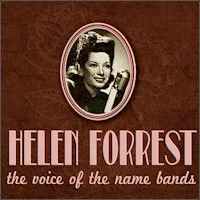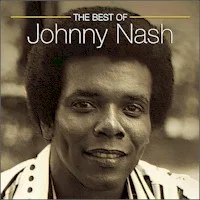Bitrate: MP3@320K/s
Time: 51:14
Size: 117.3 MB
Styles: Vocal, Big band
Year: 2011
Art: Front
[3:02] 1. Moonray
[2:50] 2. Yes, My Darling Daughter
[2:42] 3. The Devil Sat Down And Cried
[2:50] 4. I Don't Want To Walk Without You
[3:22] 5. I Had The Craziest Dream
[2:29] 6. Close To You
[3:34] 7. Day In, Day Out
[2:56] 8. How High The Moon
[2:49] 9. Shake Down The Stars
[3:18] 10. Deep In A Dream
[3:12] 11. All The Things You Are
[2:58] 12. It Never Entered My Mind
[3:23] 13. Skylark
[2:58] 14. You Made Me Love You
[3:10] 15. Deep Purple
[3:08] 16. Taking A Chance On Love
[2:26] 17. Baby, What You Do For Me
Helen Forrest (April 12, 1917 – July 11, 1999) was an American singer. She served as the “girl singer” for three of the most popular big bands of the Swing Era (Artie Shaw, Benny Goodman, and Harry James), thereby earning a reputation as “the voice of the name bands.” Helen was born Helen Fogel in Atlantic City, New Jersey on April 12, 1917. Her parents, Louis and Rebecca Fogel, were Russian-born Jews.
At the peak of her career, Helen Forrest was the most popular female singer in the United States. Because of her work with the bands of Artie Shaw, Benny Goodman, and Harry James, she is known as “the voice of the name bands” and is regarded by some as the best female vocalist of the swing era. In addition, AllMusic describes Forrest as “a performer that some might not consider a jazz vocalist, but one with exceptional ability to project lyrics and also an excellent interpreter.” Also, IMDb describes Forrest: “though Helen was not, perhaps, a jazz singer in the truest sense, she brought to her songs a wistful ‘girl-next-door’ quality” through her “femininity and warmth of her voice and the clear, emotional phrasing of her lyrics.” In his book The Big Bands, writer George Simon wrote, “Helen was a wonderfully warm and natural singer.” Over the course of her career, Helen Forrest recorded more than 500 songs. In 2001, she was posthumously inducted into the now-defunct Big Band and Jazz Hall of Fame. According to many of her fans, Forrest is reported to have been a warm, amiable woman who was always willing to chat with her fans and sign autographs. Despite Helen Forrest’s legacy, her grave is still marked with a temporary grave marker (as of 2010).
The Voice Of The Name Bands




















